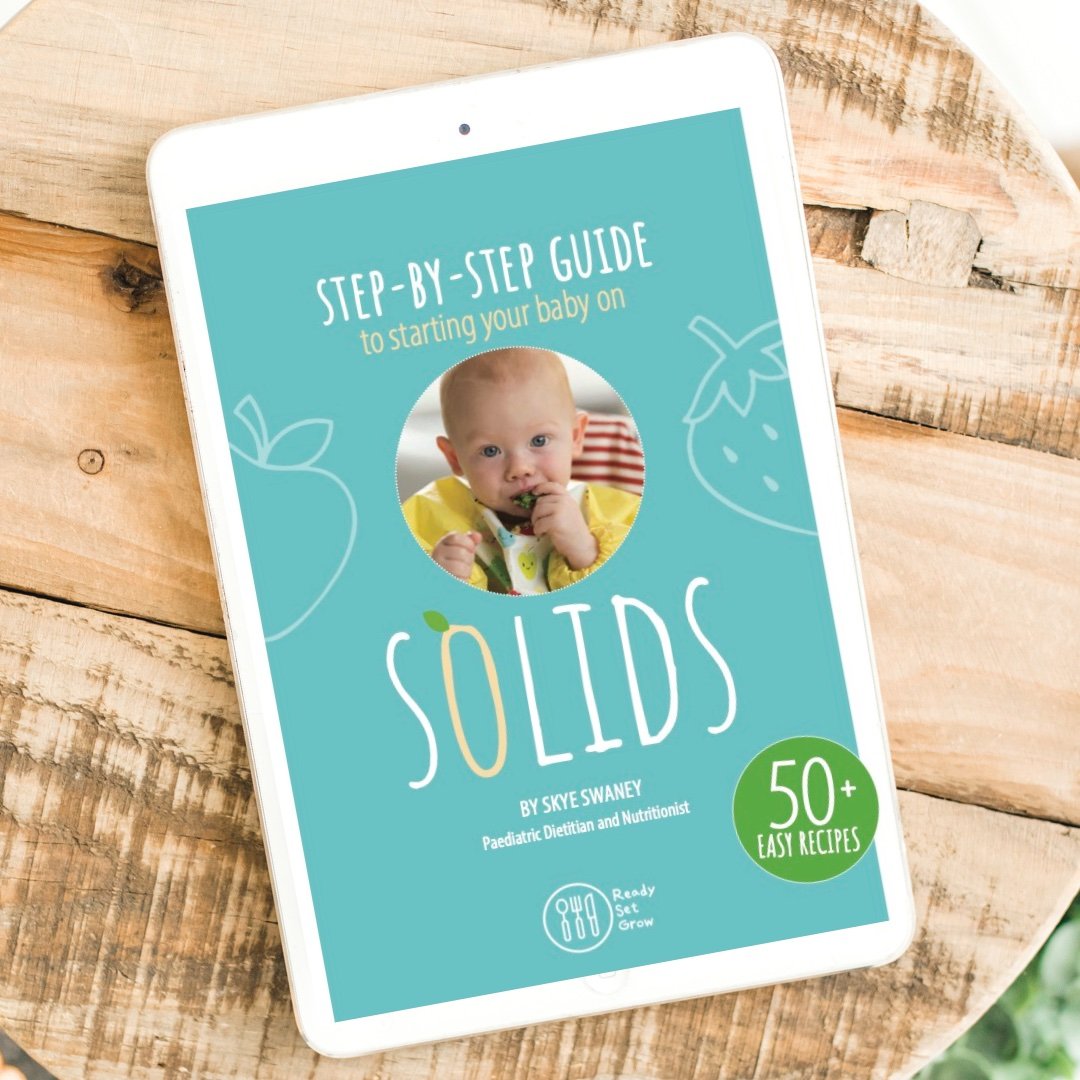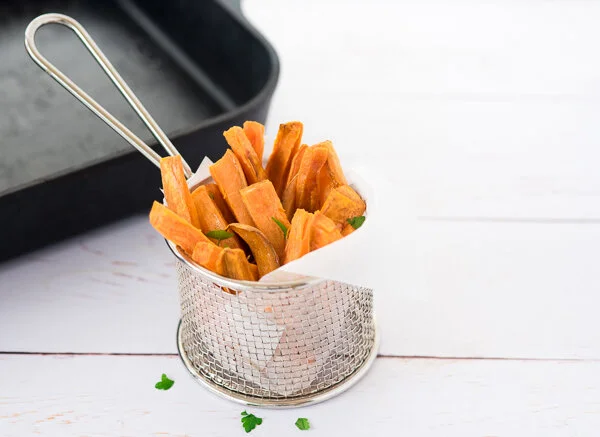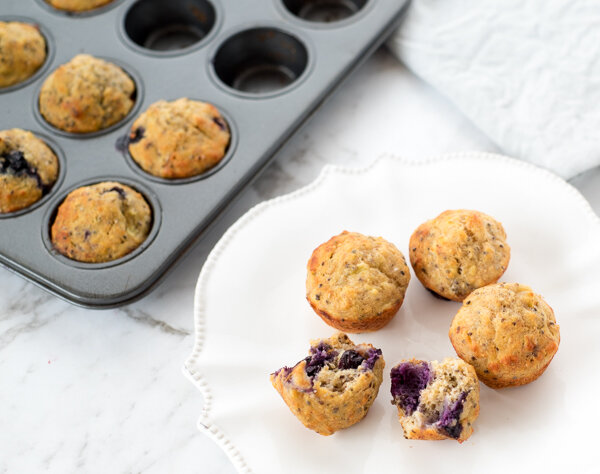Oat Porridge For Babies
There’s nothing better than a warm bowl of comforting, nourishing porridge, and babies love it too!
If you’re thinking of making your own homemade baby porridge, here’s everything you need to know, plus my easy Oat Porridge for Babies recipe.
Are oats good for babies?
Oatmeal, also known as rolled oats, is a great food for babies.
Oats are a whole grain, meaning nothing has been stripped off from the outside of the grain and all the nutrients are still intact.
Oats are a good source of carbohydrates, fiber and B vitamins and even have some protein and iron, all essential nutrients for babies’ growth and development.
They’re quick and easy to cook and can be used in lots of different ways, from porridge to bread and muffins.
What type of oats should I give my baby?
Rolled oats, or oatmeal have been processed from their original form as an ‘oat groat’ so that they’re easier to prepare and digest.
Quick oats are rolled oats that have been chopped up, meaning they cook more quickly and are digested more quickly too.
Either type are suitable for babies.
Do I need to buy special ‘baby oats’ or ‘baby porridge’?
There are some oats on the market made specifically for babies, often called ‘baby porridge’ or ‘baby oat cereal’.
These are usually a combination of oats and rice which have additional iron and vitamin C added, and in some cases other ingredients like fruit puree to add flavour and sweetness.
These products are absolutely fine to give to your baby, and they are a good way to add some additional iron to your baby’s diet, but plain old oats are perfectly fine too as long as your baby is getting plenty of iron from other sources.
The downside of these products is they can be expensive in comparison to plain oats, and the added sweetness can prevent your baby from learning to accept and enjoy oats on their own.
It’s also worth remembering that they’re usually around 50% white rice flour, so only half of the cereal is actually oats.
When can oats be introduced?
Oats (made into porridge) can be introduced from 6 months, or whenever your baby starts solids.
Do oats provide a source of iron?
Oats naturally contain a small amount of iron, around 1mg per 30g.
From 7-12 months babies need around 11mg of iron per day - but a small amount of this is provided by breastmilk or infant formula, so not all of it needs to come from food.
Oat cereal specifically made for babies is likely to be fortified with iron, but it’s fine to use normal oats or oatmeal and add a source of iron.
This could be some chia seeds or nut butter (avoid globs of nut butter as this can be a choking hazard - make sure it’s stirred through the porridge) or you could simply serve iron-rich foods at other meals that day.
Related article: Iron-Rich Foods For Babies and Toddlers
Can babies be allergic to oats?
Technically, babies can be allergic to any food, but oats aren’t a common allergen.
Oats can be a trigger for FPIES (food protein-induced enterocolitis syndrome), a delayed (non-IgE mediated) gut allergic reaction to a food, which usually occurs in the first two years of life and occurs in around 1 in every 7000 children.
FPIES presents as repetitive, profuse vomiting usually starting 1-4 hours after eating the trigger food. Some children may become floppy and pale and develop diarrhea.
Read more about FPIES here.
Related Article: The Ultimate Guide to Introducing Allergens to Babies
What type of milk should I use in baby porridge?
You can use any type of milk you like when making porridge for your baby - cow’s milk, formula, breastmilk or a dairy alternative milk (bearing in mind these may be lower in nutrients such as protein and calcium and can contain allergens).
Cow’s milk isn’t recommended as a drink until after 12 months, but can be used in porridge, cereal and in cooking.
What can I add to baby porridge?
Whatever you like!
It’s fine to serve on its own, or you can add some extra flavor and nutrients with one or more of the following:
Mashed or sliced banana
Pureed fruit such as pear, apple, berries or plums (check out my recipes section for plenty of puree recipes)
Chia jam
Yoghurt
Small seeds such as chia, hemp and sesame
Desiccated coconut
Smooth, runny nut butter (NB: globs of nut butter can be a choking hazard).
Related Article: How To Introduce Nuts To Baby Safely
How to cook porridge for baby
I personally use the microwave to cook porridge the majority of the time, but I know some people prefer not to use microwaves or don’t have one, in which case, cooking porridge on the stovetop is also a great method.
Use the below recipe for quick and easy delicious creamy porridge.
Oat Porridge for Babies Recipe
Prep Time: 5 minutes
Cooking Time: 8 minutes
Serves: 1 baby + 2 adults (makes about 2 cups)
Suitable for freezing
Suitable from 6 months
Ingredients
1 cup rolled or quick oats
2 cups milk of choice (or water)
Method
1. Place oats and milk in a large, microwave-safe bowl
2. Microwave on high for 7 minutes, stirring once or twice and adding more milk or water if required. Alternatively, place in a medium saucepan over medium-low heat and cook for 8 minutes or until liquid is absorbed
3. Blend if necessary using a food processor or stick blender (add a little extra milk or water if needed)
Serve on its own, or with one of the toppings above :)


































